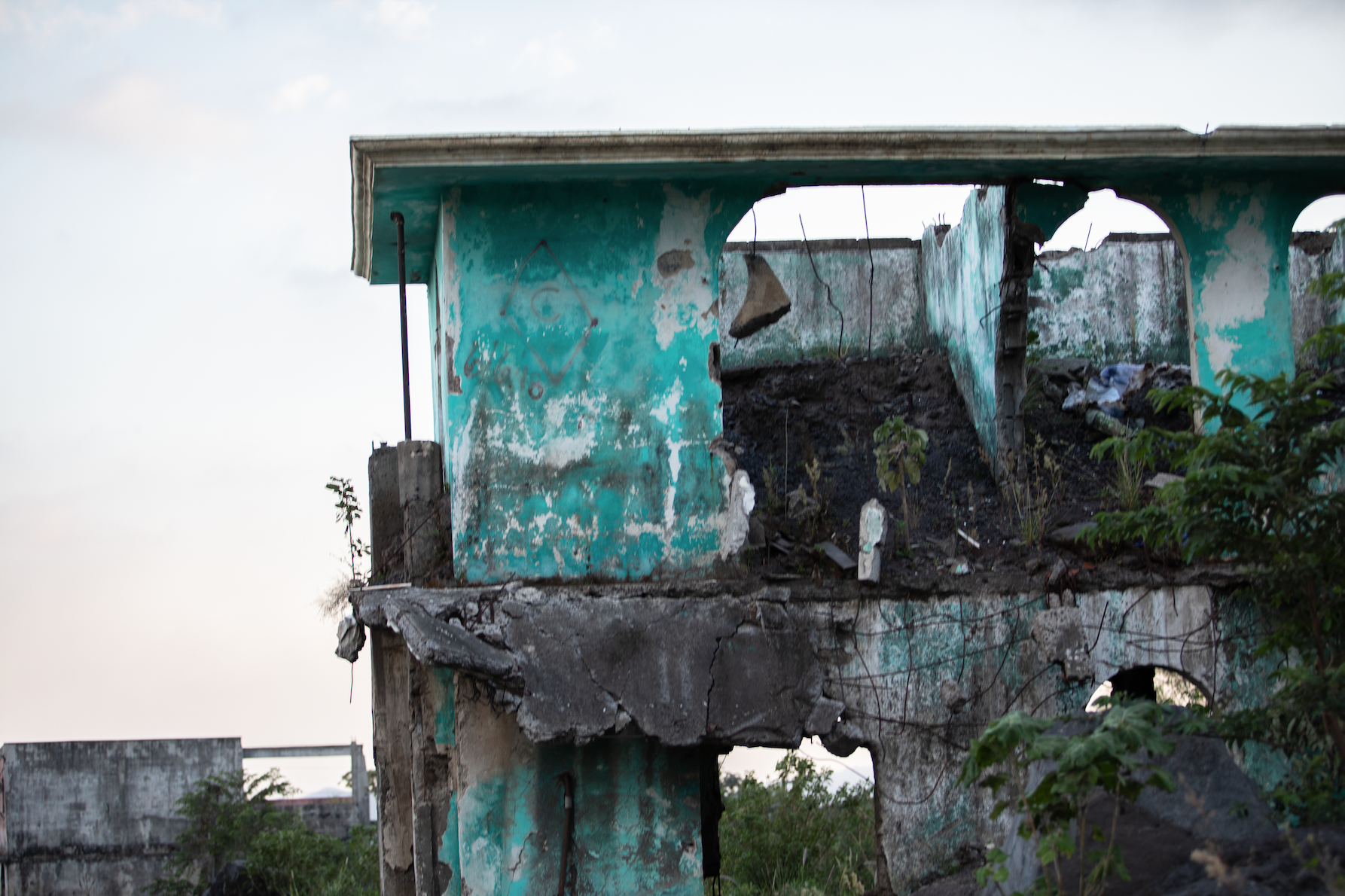Dust turned ash
Norma Ascon survived the 2018 eruption of Volcano Fuego but lost her family. Four years later, she continues to mourn the lives lost.
By Talia McWright
Norma Ascon snapped pictures on her smartphone of the dust-covered corridor outside her work at the finca in Antigua, Guatemala. Sending the photos to her 15-year-old son, she wondered if he too saw the sand-like dust in the air near their home in San Miguel Los Lotes.
“I think you and your sister should come to Antigua and have ice cream.”
“Thanks mom, but we still have a lot of homework to do.”
The dust turned to ash and Ascon’s last conversations with her children became memories.
Volcan de Fuego erupted in Guatemala June 3, 2018, killing a formally-recorded 190 people, destroying villages and affecting the lives of all Guatemalans. Today, the volcano continues to be excavated as families live without closure. More than 260 people are still missing.
The villages near the volcano are labeled “red zones,” unsafe for habitation. Before the eruption, the people of these villages were unware that they were living under a possible death threat, some survivors say. With no preventative measures in sight, the Guatemalan government attempted to relocate those affected.
Ascon, 37, lost 35 family members, including her two children, Damaris Julissa and Lester Fabian Castillo Ascon, whose bodies have not been found. Devastated by the tragedy, Ascon said she lost the motivation to work, go outside and speak with others.
“I locked myself up and I entered into depression for about two and a half years,” Ascon said.
On the day of the eruption, Ascon was working in Antigua 56 miles away from her home in San Miguel Los Lotes. Her son, daughter and Ascon’s father, Ervin Ascon, were home together. She felt that something strange was happening when she noticed what looked like dust or sand in Antigua, 18 kilometers (11 miles) away, on the ground and in the air. Throughout the day, she’d check in on her children. The two were doing homework and studying for school. It was nearing 3 p.m. when Ascon was no longer receiving text messages from her son. The country and Ascon were in panic when news of the eruption surfaced.
She lost her daughter Damaris, who would now be 17, and her son Lester, who would now be 18. Ascon worked, dedicated to providing for them. She lost her husband Ervin. She said the couple relied on each other for emotional and moral support. Ascon later lost her father, but she still had someone left to provide for.
“I used to go to work for my kids, but when I lost them, I had no motivation,” she said. “Now I have to take care of my mother, and she’s my new motivation.”
A few organizations, including Antigua al Rescate, reached out to Ascon after the eruption and provided her with aid while continuing the search for missing bodies. However, the aid did not last long, and the efforts to find the bodies of Ascon’s family members became a solo effort. Ascon discovered half of the body of her uncle in front of his house. She watched as a truck came by and swept the other half away.
Is this normal?, she wondered. Are bodies just taken and thrown in landfills like trash?
At 9:30 a.m. the day of the eruption, the hotel La Reunión, which is also a golf resort, was evacuated with warning of a volcanic eruption. According to Ascon, villages of families along the nearby Rio Achiguate near Fuego, including residents of San Miguel Los Lotes, received no warning.
“We used to hear the volcano all the time,” she said. “I felt that it was too far, but I never imagined the magnitude. If authorities give some kind of talk about how to act in case of an eruption then people would know how to take better precautions, but sadly they didn’t or it was too late when they did.”
At 3 p.m. the volcano erupted and pyroclastic material spread into the villages. Sirens blared, alerting the villagers to lock up their houses and stay inside. Ascon later found the bodies of her brother and his wife and child locked inside her sister’s house. There is still no protocol in Guatemala for those living near active volcanoes like Fuego.
Under 20 feet of ash lay bodies: young women preparing to fulfill their education, fathers excited to dance at their daughter’s quinceañera and children just learning to speak. Volcan de Fuego, a beautiful natural site for Guatemalans and tourists, became an apocalyptic force of nature. It tore apart families and left people like Ascon without closure.
For two and a half years, Ascon lived in a deep state of depression, she said. Every morning reminded her of just how much she’d lost. Four years later, with her questions not fully answered, her mind replays the events of the tragedy. Not a day passes where she doesn’t think of her children or of how unified her family once was.
A woman of faith, Ascon leaned on God to give her strength and the will to move forward. Ascon goes on. Putting her mother first and sharing her story, she aims to comfort those who’ve experienced the loss of loved ones.
“When something tragic happens to us, we feel the wall falling in on us. We feel that everything is falling, and it is horrible, but in the end you become strong and you can help many people,” Ascon said. “You start to keep going even though life is not the same. You can go on.”
(Additional reporting by María Isabel Castañeda.)





